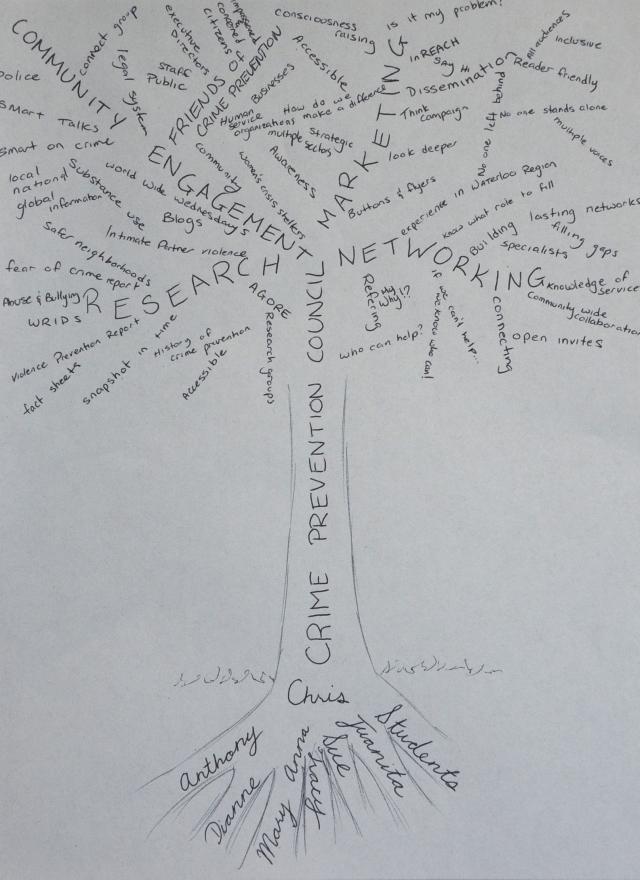Serving Time: Six months with the Waterloo Region Crime Prevention Council
Prior to my Master of Social Work student placement at the Waterloo Region Crime Prevention Council (WRCPC) in January of 2014 I had very little, if any, knowledge of the concept of ‘the root causes of crime’. I knew quite a bit about human development, that we are all products of our past experiences, and it was pretty clear that crime is likewise a result of countless influences; it is so much more than ‘bad people’ doing ‘bad things’. What we do and how we decide to act is dictated by all of the tiny events that make up our lives be they happy or sad, wonderful or traumatic, important or seemingly insignificant. The WRCPC addresses these root causes, this infinite web of experiences and events, to help prevent crime before it occurs.
So it sounds pretty simple right? Address the causes before they lead to trouble, is it really that revolutionary? After spending the past six months with this team I can say with conviction that yes, yes it is! There are so few organizations that dedicate their time and effort solely to the prevention of crime and the study of root causes of criminal activity. If you don’t believe me try to search ‘crime prevention’ or ‘root causes of crime’ in any major search engine and not find something about the WRCPC on the first page. Working with this organization has opened my eyes and, to borrow their phrase, I have a better understanding of how to be ‘smart on crime’. Now it is far easier for me to consider the whole picture rather than simply looking at the end result. Because crime is so complex and intricate, it requires equal complexity and intricacy in order to effectively address it.
If you will, I would like to share with you my understanding of what the WRCPC really is. Rather than explaining the organizational chart of the WRCPC, which, I am by no means an expert, this is a map of my experiences with the WRCPC. Becausethe majority of the work that the WRCPC does involves providing support, information, and networking opportunities for other human service organizations in the Region, they rarely get the chance to advertise the fantastic work that they do.
The following image is an embodiment of my experiences at the WRCPC. These are the things that I directly witnessed or had a role in completing during my stay and I am sure that I didn’t get it all.

Ryan’s Mind Map to illustrate how he understands crime prevention through social development.
The six staff members are the very foundation of the council, providing the nourishment and support that is needed to complete this vast array of work. Each member plays a significant role and sustains an entire branch of ‘crime prevention’. Christiane Sadeler is the bridge between the staff and the council itself (a body of impassioned community members representing the human services sectors throughout the Region). With this sturdy foundation of staff and council members all of the tremendous work is completed. From academic research to community engagement the WRCPC addresses ‘crime prevention’ from all angles.
It has been such a pleasure to work within this jumbled group. I have learned so much and had the pleasure of working with such meaningful and impactful projects. If you have never had the opportunity to work with crime prevention or just want to know more about what it means do what I did; become a Friend of Crime Prevention. Let’s attend a meeting and have a real discussion about the ways we can make our Region stronger, healthier, and happier. There is always more that can be done and my journey is nowhere near complete.
Author: Ryan Maharaj, MSW Student with WRCPC. Ryan recently moved to Waterloo in pursuit of his Masters in Social Work at Wilfird Laurier University. Placed at the Waterloo Region Crime Prevention Council, he has been given the opportunity to explore the role of male allies in the movement against sexual and intimate partner violence. He firmly believes that with respect, support, compassion, and education we can prevent the occurrences of sexual violence in the next generation.
